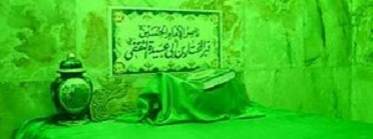

There are two different opinions about Mukhtar al-thaqafi. Some commended him and others blamed him.
The following are some reliable traditions in which Mukhtar has been commended and accepted by scholars of hadith and Rijal sciences:
Based on reports in history books, Mukhtar killed Umar bin Saad and sent his head along with some money to Muhammad bin Hanafiyah. Seeing Umarbin Saad’s head, Muhammad bin Hanafiyah prayed for Mukhtar as such, “O Allah, grant Mukhtar the best of rewards on behalf of Muhammad (saws) and his Ahlul-Bayt (1).”
Indeed, according to another tradition which has been related by Kashi in his book, it says, “When Ubaidullah bin-Ziad and Umar bin Saad heads were brought to Imam Zainul Abedeen (a.s), the Imam prostrated praising and thanking Allah (SWT) and praying for Mukhtar and wishing him well (2).”
Based on a another report by Ya’qubi, Ubaidullah bin Ziad's head was sent to the fourth Imam, Imam Sajjad (a.s) and Umar bin Saad’s head was sent to Muhammad bin Hanafiyah. It was said, “Do not blame Mukhtar, because he killed our enemies (3).”
However, there were some traditions in which Mukhtar has been blamed, (4) but most of Shia scholars haven’t approved such traditions (5).
References: (1) Ibn A’tham Kufi, Ahmad bin A’tham,al-Fotuh, researched by, Shiri, Ali, vol.6, p. 247, Dar al-Azwaa, Beirut, 1411 A.H; al-Bedayah wa al-Nehayah, vol.8, p. 274; Balazari, Ahmad bin Yahya, Ansaab al-Ashraf, researched by Zakaar, Suhayl,Zarkali, Reyadh, vol.6, p. 406, Dar al-Fikr, Beirut, 1417 A.H. (2) The Arabic version of the report is as under: «أَنَّعَلِيَّ بْنَ الْحُسَيْنِ(ع)لَمَّاأُتِيَ بِرَأْسِ عُبَيْدِ اللَّهِ بْنِزِيَادٍ وَ رَأْسِ عُمَرَ بْنِ سَعْدٍخَرَّ سَاجِداً وَ قَالَ الْحَمْدُلِلَّهِ الَّذِي أَدْرَكَ لِي ثَأْرِيمِنْ أَعْدَائِي وَ جَزَى الْمُخْتَارَخَيْراً» Kashi, Muhammad bin Umar, Ikhtiyar Ma’refat al-Rejal, researched and edited: Shaykh Tusi, Muhammad bin Hasan, Mustafawi, Hasa, p. 127, Mashad University Press, first edition, 1409 A.H. (3) Biharal-Anwar, Vol. 45, Pg. 343. (4) Bihar al-Anwar, Vol. 45, Pg. 343; Ibid, Pg. 126. (5) Mojam al-Rijal, Vol. 18, Pg. 100.


